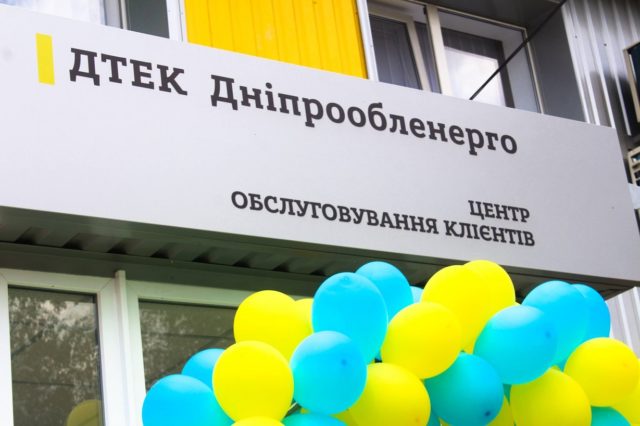
Modest Restart to Ukrainian Privatization
Publication: Eurasia Daily Monitor Volume: 14 Issue: 108
By:

After a break prompted by war and economic collapse in 2014–2015, Ukraine restarted its privatization campaign in August 2017. The local privatization body, the State Property Fund (SPF), sold only five out of the state’s eight 25 percent stakes in the regional power-supply and generation companies that were put up for auction (Spfu.gov.ua, August 31). That was a late and weak start of this year’s campaign. The government raised only $115 million as a result, while the state budget law for this year had projected 17 billion hryvnias ($650 million) in privatization proceeds. The government is also dragging its feet vis-à-vis several other important privatizations. These delays may complicate Ukraine’s consultations with the International Monetary Fund (IMF), which are expected this month, as vigorous privatization has been one of the IMF’s main conditions for the continuation of its $17 billion Extended Fund Facility (EFF) program to support Ukraine.
All of the government’s 25 percent stakes were auctioned off by the SPF to Ornex, a firm linked to the ultimate owner of their majority stakes—metals and mining tycoon and Ukraine’s richest businessman, Rinat Akhmetov. On similar occasions in the past, privatization conditions were formulated so that only particular buyers favored by the government could fit the criteria. That was not the case this time around: Akhmetov’s firm faced little or no competition simply because no other potential buyers displayed particular interest. The five privatized companies had already become part of Akhmetov’s energy conglomerate, DTEK, several years ago, when previous governments sold their majority stakes to him in privatization tenders that arguably lacked transparency. Buying only minority stakes in these DTEK daughter companies now would have made little sense to outsiders.
The last stakes auctioned off on August 31 were those in the power-supply company Dniprooblenergo and the power-generation company Dniproenergo, both based in the key southeastern industrial base of Dnipro (formerly the city of Dnipropetrovsk) and Zaporizhya. Ornex bid the equivalent of $38 million for the Dniprooblenergo stake, which was double the offer price, and $28 million for the Dniproenergo stake, which equaled the offer price. Ornex faced one rival in the auction for the Dniprooblenergo stake, so there was at least a semblance of competition there; while no other potential buyer came up for the Dniproenergo stake, hence the sale meeting only the original offer price (Spfu.gov.ua, August 31).
A day earlier, the SPF canceled an auction to sell 25 percent of shares in the power-generation company Donbasenergo because there were no bids. This had been expected, as Donbasenergo’s assets are concentrated in the areas held by Moscow-backed militants in the eastern region of Donbas. It is unclear why the government put them up for sale in the first place. The SPF also failed to sell stakes in the power-supply firms Odesaoblenergo and Sumyoblenergo (Biz.liga.net, August 30). The three 25 percent stakes auctioned off to Ornex earlier in August were of the power-generation company Zakhidenergo, Ukraine’s key power export firm; the power-generation company Kyivenergo, which sells electricity to consumers in the capital Kyiv; and the power-supply company Donetskoblenergo, which runs the country’s biggest power-transmission network (Epravda.com.ua, August 18).
The slow privatization restart is likely to be discussed by the IMF’s First Deputy Managing Director David Lipton, who is expected in Kyiv on September 12–14. In addition, an IMF mission is expected in Ukraine this month to check whether the country qualifies for the next EFF tranche. Kyiv promised to the IMF to sell not only the power company stakes this year, but also the chemical company Odesa Portside Plant, the key power-generation firm Centerenergo, and Turboatom, which makes turbines for power plants, including nuclear plants (Interfax, April 4). The privatization of each of the three companies had been postponed for many years. However, it emerged in July that the SPF was likely to sell the Portside Plant only early next year, while Centerenergo’s privatization was postponed to the middle of next year (Biz.liga.net, July 27).
Meanwhile, the SPF has remained without a head since April, when Ihor Bilous, who had chaired it for less than a year, resigned. The government, on September 6, replaced Dmytro Parfenenko with Vitaly Trubarov, as acting head of the SPF (UNIAN, September 6). The job has been a hot potato, given not only the time pressure and responsibility involved, but also apparently the vested interests the government and the SPF have to learn to disregard when it comes to privatization. Incidentally, two former SPF heads died strange deaths: Valentyna Semenyuk-Samsonenko, who chaired it in 2005–2008, was found shot in the head in her home in 2014, and Mykhaylo Chechetov, the chairman in 2003–2005, fell from a 17th-story window in 2015.
Along with privatization, Kyiv also promised to the IMF to adopt pension reform and take more effective measures against corruption. The government and parliament did include pension reform among their priorities for this autumn (Kmu.gov.ua, September 4), but it is not clear when the national legislature will adopt it. As for corruption, Kyiv has been dragging its feet over the establishment of an anti-corruption court. Summing up, the upcoming talks with IMF officials are likely to be difficult.



